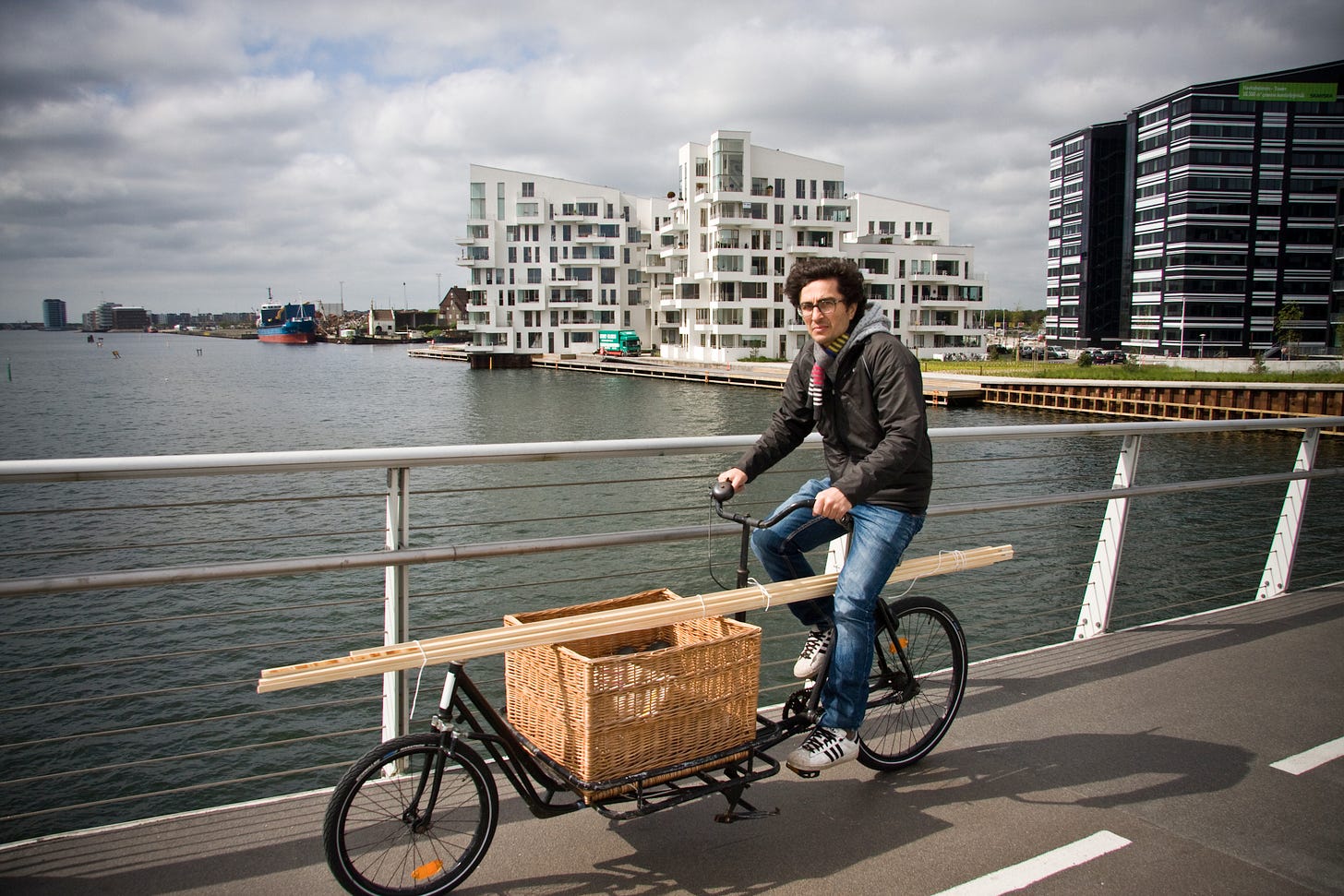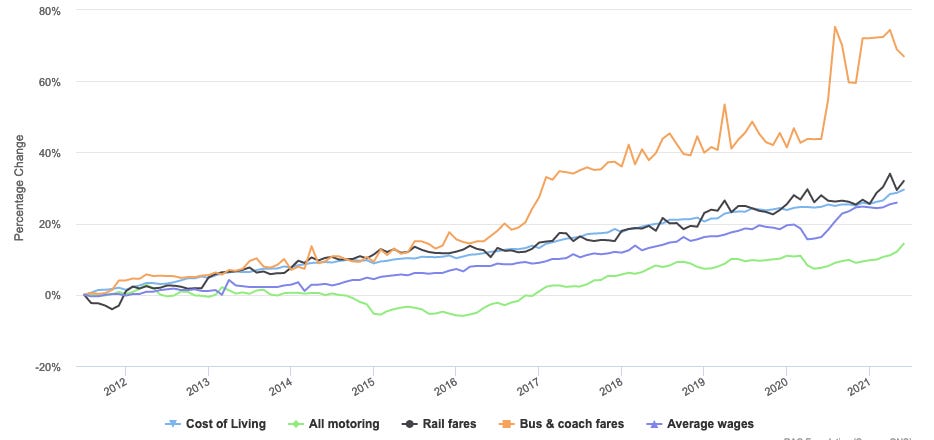Mobility Matters Daily #131 - Decarbonising urban freight and transport geo-politics
Anyone who has purchased a train ticket in the UK recently will feel the pain of the visualisation
Good day friend.
With most the public sector seemingly away this week, I actually have a chance of getting some work done. Three meetings all week. I can’t remember this ever happening! To the news.
James
Pathways to decarbonising urban freight are long. Or you could just use a bicycle.
A couple of recent journal articles touch on the issue of how you decarbonise urban freight. I say recent, they have just been brought to my attention. Anyway, Tharis Teoh has published an article looking at different typologies for strategies to decarbonise urban freight, whilst Marianna Rottolia, Alois Dirnaichnera, Robert Pietzckera, FelixSchreyera and Gunnar Ludererab published an article on electrification pathways for light goods vehicles.
A repeated conclusion from both is that the technology issue is becoming less so, as vehicles and charging infrastructure improve in range and reliability. The challenge is the business case for investing. Teoh’s article particularly looks at the business case in terms of integration of electric fleets into existing operations for freight operators, and understanding the costs of disruption to this. This points to an issue that is often, but wrongly, attributed to technology - that of technology fitting a solution the market says it wants, based upon current business needs.
As the vehicles, their maintenance and operation, are key drivers of the delivery business model from a cost perspective, electrification will change the business model through changing the operational model. Which poses a question. Why not, for some deliveries, just use a bicycle instead?

Improving connectivity is a geo-political power play
In response to China’s Belt and Road Initiative, otherwise known as the New Silk Road, EU leaders have set in motion plans to develop their own strategy on global connectivity, calling it a “geostrategic and global approach to connectivity.” As the Centre for Global Development states, if they want to produce this plan within a year they need to get their skates on. It shows again the importance of transport as a geo-political tool.
On the ground the impacts are very real, as the infrastructure needed to deliver these initiatives has to go somewhere. The EU has invested a lot of money in the Western Balkans to improve infrastructure connectivity there, and China is a major investor in African infrastructure. Not only is there a lot of money in infrastructure investment, but when an areas’s economy is stimulated and depends on your investment, it gives you a lot of leverage.
Transport is about politics. The thing about politics is that it plays out in a number of ways. It’s not all about whether a party supports roads or cycle infrastructure. Its about power.
Visualisation of the Day

Trying to book a train from where I live to Glasgow* in September reminded me of this graph from the RAC Foundation. In the UK, the costs of motoring have risen at a lower rate than average wages and the cost of living since 2013. Just look at the rises in costs of buses and trains in comparison. How is this sustainable in a low carbon future?
Source: RAC Foundation Cost of Transport Index
* In case you were wondering, from where I live in Bedfordshire, the train takes 13 hours to get to Glasgow and come back for a cost of £175. By plane its 9 hours there and back for a cost of £100 including all travel to and from the airport and waiting at the airport. For the coach, its 22 hours there and back for a cost of £75.
If you do nothing else today, do this
Sign up to the Transport Planning Society’s Bursary Paper scheme for this year. Though you do need to be a young transport planning professional.
